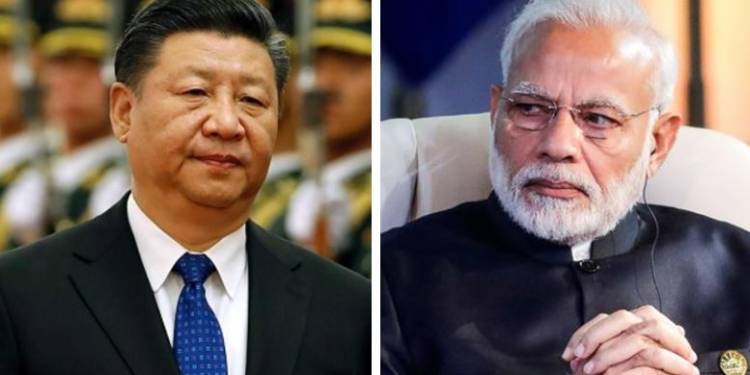India’s post-Pandemic diplomacy in its neighbourhood is taking shape. New Delhi is realising the threat of China’s growing ambitions in India’s neighbourhood. And therefore, a new energy and vaccine diplomacy is taking shape as India ensures that none of its friendly neighbours like the Maldives, Bhutan, Bangladesh, Myanmar Nepal, Sri Lanka and Afghanistan fall into China’s lap. India is realising the importance of vaccine diplomacy at a time when the entire world is battling the Wuhan virus.
India’s Foreign Secretary Harsh Vardhan Shringla has made it clear that Indian pharmaceutical companies will be among the biggest producers of a Coronavirus vaccine once it becomes available. He has also made it clear that New Delhi would ensure adequate supplies in its neighbourhood. Shringla also said that India’s relations with Nepal, Bangladesh and Sri Lanka have never been better “contrary to impressions.” This announcement is in line with Prime Minister Modi’s Neighbourhood First policy.
At the same time, India also understands that investment in energy sector is one of the key measures to bolster dipping economies around the world courtesy the slowdown triggered by the Chinese virus. Therefore, India has kickstarted energy diplomacy in its neighbourhood by proposing a petroleum refinery in Myanmar that would involve an investment to the tune of $6 billion.
The refinery proposal has been discussed during the joint visit of Foreign Secretary Shringla and Indian Army Chief, General MM Naravane to Myanmar. TOI quoted a source as saying, “As of now IOCL (Indian Oil Corporation Limited) has evinced interest in the project.”
It is quite a bold initiative on India’s part to invest in Myanmar’s energy sector, given that China presently controls 70 per cent of foreign investments in Myanmar’s energy sector. New Delhi is therefore proposing to pull Myanmar out of the undesirable web of Chinese dependency. It is also going to diversify and empower Myanmar’s energy sector.
Presently, Myanmar, which is the core of India’s Act East policy has very few refineries and imports mainly for domestic fuel consumption purposes. However, the situation can change if India invests heavily in the refinery segment of Myanmar’s energy sector.
In fact, New Delhi is looking at a detailed plan to use vaccine and energy diplomacy as a part of its neighbourhood outreach plan. India plans on using its position as the biggest vaccine-maker in the world to assist friendly nations as soon as a Coronavirus vaccine is manufactured in India. A recent HT report stated that India is looking at free distribution of COVID-19 vaccines to immediate neighbours like Bangladesh, Afghanistan and other SAARC countries except Pakistan.
Therefore, India is looking to target all its friendly neighbours such as Bhutan, Sri Lanka, Nepal and the Maldives. In fact, the vaccine diplomacy plan has now started taking shape. Recently, India decided to support Myanmar in developing a COVID-19 vaccine. Shringla said, “I also wish to inform you that…with respect to the Covid vaccine, we stand committed to sharing our capabilities with our strategic partners, including Myanmar, in our collective best interest.”
Moreover, India has already promised vaccine doses to Bhutan and the Maldives. Similarly, Dhaka too has come on India’s radar and Shringla had made it clear that Bangladesh would be given priority access as and when mass manufacturing of a COVID-19 vaccine starts.
In fact, India is playing the leadership role in vaccine development for the entire South Asian region minus Pakistan. Last month, India launched a training program to strengthen clinical trial research of vaccines in its neighbourhood. The first online orientation of the training program was attended by representatives from Nepal, the Maldives, Bangladesh, Mauritius, Sri Lanka, Bhutan and Afghanistan, showing how the entire region is strongly rallying behind India.
Meanwhile, India is also investing heavily in both conventional and renewable energy projects in its entire neighbourhood as a part of New Delhi’s strategy to kick China out of South Asia. In August, Kathmandu Post reported that India and Nepal are in talks to launch several petroleum projects worth millions of dollars. At least three petroleum and gas pipelines, a liquefied petroleum gas plant and several oil storage facilities are proposed to be built in Nepal.
As far as Sri Lanka is concerned, India is planning to build a solar power park in the Island country. India’s largest power generation corporate NTPC Ltd is reportedly planning to set up this project in Sri Lanka under the aegis of the International Solar Alliance (ISA).
Similarly, in the Maldives, India is looking to invest heavily in the renewables sector. Recently, India and the Maldives announced that they would be cooperating closely in the renewable energy sector.
As such, New Delhi understands that in a post-Pandemic world, it will have an opportunity to sideline China in South Asia owing to the rampant anti-China sentiment. Therefore, vaccine and energy diplomacy are becoming the bulwark of India’s Neighbourhood First Policy. This is India’s masterplan to wrest Myanmar, Afghanistan, Nepal, Sri Lanka and Bangladesh from Chinese control.
